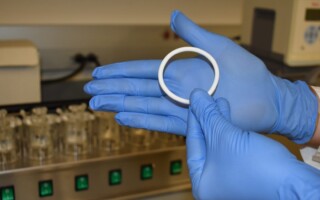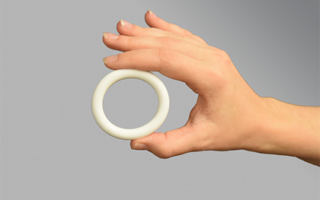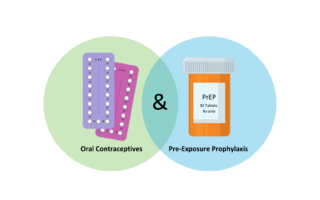
While several contraceptive methods have been developed for short- and long-term protection against pregnancy, women’s needs differ and may change over the course of their lifetime. Having access to a variety of contraceptive options allows women to choose the method best suited to their needs.
In low-resource settings, women face unique barriers to obtaining effective contraception. A woman may encounter opposition from her family or community. Public-sector programs, the main source of contraception in most developing countries, typically offer limited options and supplies are not always available. Healthcare providers may not be trained or available to provide the counseling and services that women require in order to address their reproductive health needs. These factors leave women at risk for unintended pregnancy, unsafe abortion, and other health risks associated with pregnancy and childbirth.
Annovera is the first in a new class of contraceptives. It is a soft, reusable flexible silicone ring (2 ¼ inches diameter) that can be inserted and removed by a woman herself. Left in place for 21 days and removed for 7 days, it is indicated to prevent pregnancy for up to a year and does not require refrigeration, which is particularly important for distribution and use in low-resource settings.
Annovera has not been adequately evaluated in women with a body mass index (BMI) greater than 29 kg/m2. In formulating the ring, Population Council researchers combined a widely used estrogen (ethinyl estradiol) with a new progestin (Nestorone®) to develop a single ring that can prevent ovulation for an entire year (13 cycles).
The FDA approval of Annovera is based in part on data from 17 clinical trials, including two pivotal Phase 3 safety and efficacy trials. The Phase 3 program enrolled a total of 2,308 women across 27 study sites in the United States, Latin America, Europe, and Australia. Women in the trials were between 18 and 40 years of age and were instructed to use the system over 13 menstrual cycles, or one full year.
Women in the Phase 3 trials of the new ring ranked it highly in terms of convenience, ease of use, and comfort. Nearly 9 in 10 women (89%) surveyed were satisfied with the ring as a method of contraception. Most participants surveyed found the ring easy to use and experienced no change in sexual pleasure or frequency when using the ring. The majority of women and their partners reported that they did not feel the ring when it was in place.
The Population Council has a license agreement with Mayne Pharma to make Annovera available to women in the United States.




